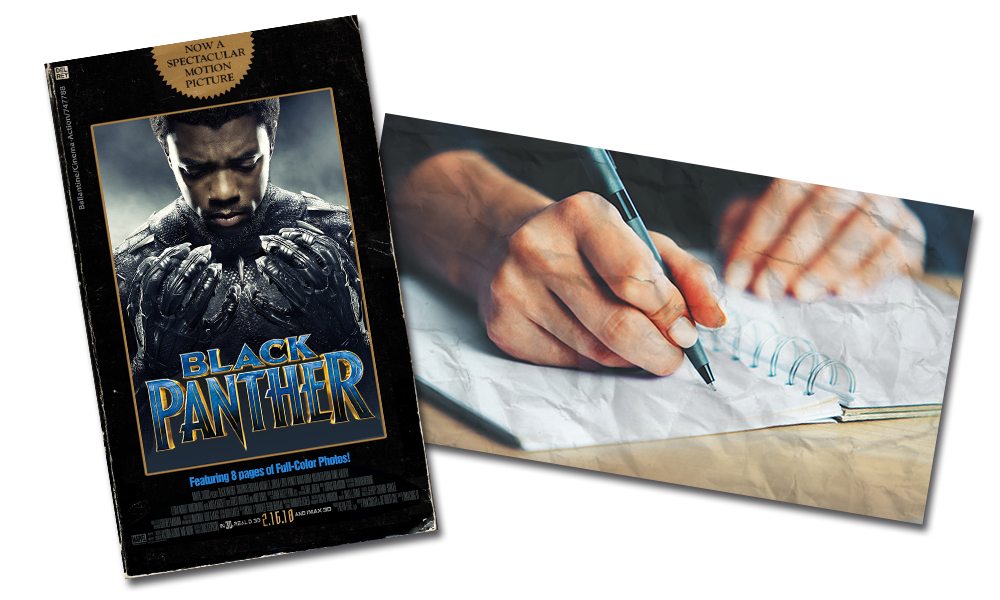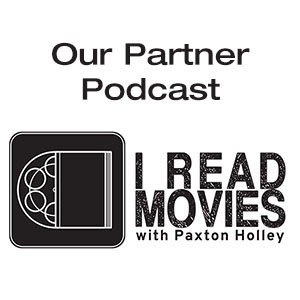For every film that has an associated novelization, there are probably fifty to a hundred that don’t. Since the heyday of the film-to-book adaptations has long since passed, it makes us wonder sometimes how the genre manages to continue, especially when it seems like there are wide swaths of movie releases that could benefit from a tie-in novelization. These days only the largest blockbusters tend to receive the adaptation treatment, and usually it’s only science-fiction or fantasy related films that have books published. Movies like Ghostbusters (the 2016 remake), Kong of Skull Island, and Star Wars: The Last Jedi spring to mind as far as films that were adapted, but films like The Fate of the Furious, Spectre or Jurassic World didn’t receive adaptations (well, there is a Jurassic World young adult novelization, but that’s hardly what we’re looking for.) So why would these blockbuster films need novelizations? Though in the 70s and 80s these novel adaptations were primarily intended to boost a film’s reputation or marketing coverage (at a time when publishing still held sway in the industry) while netting the publisher a few bucks, there have always been under-served audiences that were perfect targets for novelizations. Take for example the hearing impaired who love cinema as much as anyone, but who aren’t being served by films in movie theaters as closed captioning is something that doesn’t tend to work in that medium. Those folks have to wait for closed captioned broadcast, cable, or home video releases to fully appreciate the movies typically, but if they wanted to experience the story in tandem with a cinematic release schedule, their best bet was the novelization. Or how about kids that don’t have easy access to theaters due to age, location or expense? A trip to the local or school library and their paperback spinner racks full of novelizations certainly solved that problem for us when we were still in elementary and middle school.
Or consider the case of our friend Youseph who has been filling in a gap that novelizations could be covering if they were more widespread these days. Youseph is an interesting guy we ran into on social media a few years ago. A huge fan of the Transformers and pop culture, he’s been spending a lot of his free time podcasting and writing about pop culture, and lately he’s also been bitten by the old school pen pal bug and has been writing to inmates. Though the hobby is considered controversial by some, there’s a level of compassion to prison pen pals that is quite enviable. We’re all in this complicated system together, and taking the time to write to prisoners is a big step in the rehabilitation process that can be a huge help for people who want to get their life back on track by keeping up their spirits, having a connection to the outside world to help them stay informed and to give them something positive to focus on in an environment that is designed to beat an individual down. Youseph has also been doing something very cool this past year, something he plans to share with his pen pal in the near future. Since the availability of films, particularly recent releases, is severely limited while incarcerated, Youseph has been slowly writing his own novelization of the 2018 Marvel blockbuster The Black Panther with plans to share it with his pen pal when he’s happy with the adaptation.

When Youseph mentioned to us what he was doing, we were taken aback by the time and effort that adapting a film to prose can take, especially for someone who isn’t being paid to do it. There has been numerous times when we’ve considered tackling a much desired adaptation ourselves, but it’s usually relegated to the wish fulfillment portion of our brains and tucked away as a project we’re likely never to start. As much as we’d like to see novelizations of The Monster Squad or Young Guns, it seems like a daunting mountain to climb in order to just please ourselves. Without the promise of an audience to read our efforts it seems pointless. But that’s why we are so excited by what Youseph is attempting in his novelization of Black Panther. Not only does he has an appreciative and captive audience, but it illustrates that there is potential in tackling a project like this.
Youseph is also targeting one of the largest gaps in the landscape of modern novelizations. Though the modern blockbuster superhero genre has taken over cinema over the last decade, and it’s square in the crosshairs of the types of works that are adapted these days (sci-fi/fantasy), there are very few novelizations in the genre. Though the DC Comics films tended to be adapted at first (Man of Steel, Wonder Woman and Suicide Squad all received novelizations), we have still yet to see books for Batman V Superman, Justice League, or Aquaman. Marvel Studios has an even poorer track record for releasing novelizations. The first couple of Iron Man films and the Incredible Hulk received books, and there were some junior novelizations of a few of the Avengers, Guardians of the Galaxy, Thor and Captain America flicks, but for all intents and purposes there are really only the three. That leaves 19 blockbuster films with no tie-in adaptations, which is kind of odd when you think about it. Disney seems to be leaving a potentially profitable revenue stream off the table.
Bottom line, sometimes when there is no novelization of a cool movie, you just have to sit down and write it yourself.
Lastly, if you’re curious about finding a prison pen pal, check out Write a Prisoner, a database of pen pals and prisoners seeing help with job placement and legal aid that’s celebrating 19 years online.

